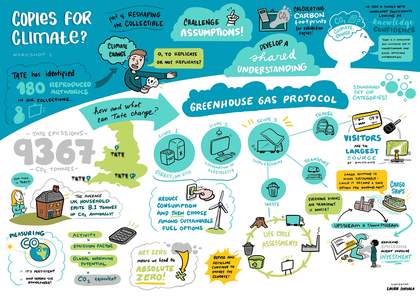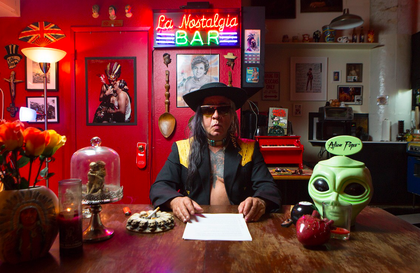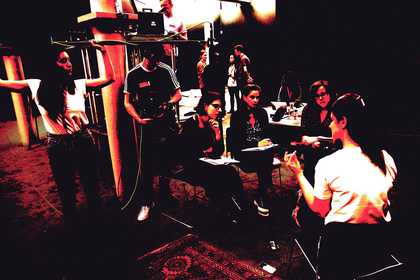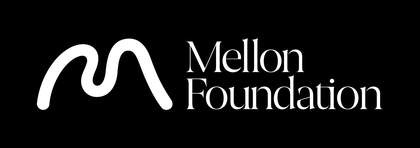We are delighted to have hosted a conference that provided an opportunity to come together to share our research at the end of the three-year project, Reshaping the Collectible: When Artworks Live in the Museum, funded by the Mellon Foundation. The conference brought together different voices from within and outside the museum to explore the work that has been done, and to look to the future.
In January 2018, Tate was awarded a major grant from the Mellon Foundation for a programme of research to examine and develop our practice in response to the conservation and management of recent and contemporary works of art, in particular time-based media, performative, live and digital art.
The research focuses on works that unfold over time, that question the boundaries between the artwork, the archive and the record, and that have complex social or technological dependencies within networks outside the museum. The project has brought together conservators, registrars, curators and archivists, and throughout the course of our research has been shaped by the wider events of the past four years. These encounters have repeatedly challenged our inherited practices, inviting us to think anew.
The conference explored artworks that generate archives, the relationship between memory and the future, radical hospitality and love, replication and the carbon impact of exhibition copies, what is at stake in making the practices of conservation and collection management more visible, and what it means to learn an artwork.
Join the Slack Channel for Reshaping the Collectible, set up for conversations to take place before, during and beyond the conference! Thank you to INCCA for facilitating the use of their Slack Group.

Illustration by Laura Sorvala, www.laurasorvala.com

Guillermo Gómez-Peña
Photo: Zen Cohen, 2012
Wednesday 14 September, 12.00–19.00
Welcome, 12.00–12.10
Welcome to the conference:
Maria Balshaw, Director, Tate
Deborah Potter, Director of Collection Care, Tate
Welcome to the conference and introduction to the first day’s sessions:
Pip Laurenson, Professor of Conservation, Director MSc Conservation of Contemporary Art and Media, UCL and Project Lead Reshaping the Collectible: When Artworks Live in the Museum
Session 1, 12.10–15.10
Unsettling Inherited Practices
Convened by Libby Ireland and Jack McConchie
Building on learning undertaken within the conservation team through working with artists Ima-Abasi Okon and Richard Bell, this session will investigate inherited practices in museums. By identifying the museum as a colonial institution and acknowledging collection care’s complicity in the traditional museum drive to own, fix and hold the knowledge around artworks, the session will look at how our inherited procedures and approaches may be limiting the ability of artworks to live in the museum.
The discussion will focus on the changing practice of staff in the Collection Care Division prompted by their interaction with artists and artworks, and will explore the possibilities for change – both on an individual and institutional level. Ideas that will be explored include slowness, care, slippage and loss, degrowth and the changing relationship between the museum, artist and artwork through theories of radical hospitality.
Speakers:
- Libby Ireland, Sculpture and Installations Conservator, Tate
- Richard Kearney, Charles Seelig Chair of Philosophy at Boston College, International Director of the Guestbook Project
- Taylor Le Melle, writer, curator
- Jack McConchie, Time-based Media Conservator, Tate
- Ima-Abasi Okon, artist
- Gala Porras-Kim, artist
- Valentina Ravaglia, Curator, Displays and International Art, Tate
Music by Feat. Ya Girl
Session 2, 15.25–17.00
Beyond an Archival Impulse
Convened by Sarah Haylett
This session will present the research undertaken around the boundaries between artworks, records and archives from the perspectives of the key stakeholders: artists, archivists and the museum.
It will balance how and why artists look to ‘the archive’ as a medium or leitmotif in their practice, with shifts in the archival sector, looking at ideas of neutrality and the archive as a system of power and exclusion. It will draw on how these two ideas overlap, exploring the practices of artists who have moved beyond archival imagery into actively creating archives within their artworks. Finally, it will introduce the participatory and collaborative record-creator centred archival methodologies that will allow these archives to exist, expand and make space for new voices in the art museum.
Speakers:
- Richard Bell, artist
- Sarah Cook, curator, writer and Professor of Museum Studies in Information Studies, University of Glasgow
- Kathy Carbone, Lecturer, Department of Information Studies, University of California Los Angeles
- Sarah Haylett, PhD researcher, UCL and Tate
- Tamsin Hong, Assistant Curator, International Art, Tate
- Moi Tran, artist
Session 3, 17.15–19.00
Starting a Slow Conversation
Moderated by:
Libby Ireland, Sculpture and Installations Conservator, Tate
This discussion will draw on ideas discussed in the conference session Unsettling Inherited Practices, which will outline ‘inherited practices’ as processes, mindsets and tools which have been developed within museums to aid the colonial practice of collecting. These are used to bolster principles of ownership, knowledge-holding and fixity which are intrinsic to traditional museum collecting, whilst shifting power away from the artist and artwork, stifling evolution, emotion and multiplicity.
Examples of inherited practices could include the concept of the neutral voice, the preference for speed and efficiency, and the emphasis on artist interviews as a tool for fixing the artwork and separating the work from the artist, whilst decentring more informal and non-linguistic modes of understanding.
This additional time will give an opportunity for attendees to work together to discuss the idea of inherited practices in more depth, drawing on their own experiences to understand where inherited practices may be limiting their ability to respond to artworks. This will also create space for attendees to think about how they can change their practices, and seek change within their workplaces, to better host artworks, artists and objects.
By giving space for undirected, small group discussions, we hope this time can be the beginning of slow conversations which can draw out over time. These complex conversations take time to allow for thought, change and discussion, and we hope that this can be the start of an unfolding dialogue.
Thursday 15 September, 10.15–18.15
10.15–11.15
INCCA Café: Remaking, Remastering, Reproducing
Moderated by:
Alexandra Nichols, Conservator, Time-based Media (Exhibitions and Displays), Tate
Josephine Bobeck, Conservator of Contemporary Art & Sculpture, Moderna Museet
Zeeyoung Chin, Conservator of Modern and Contemporary Art, Leeum Samsung Museum of Art, Korea
This INCCA Café is now fully booked.
Tate, in collaboration with the International Network for the Conservation of Contemporary Art (INCCA), is hosting an INCCA Café to discuss the challenges and considerations surrounding remaking, remastering and reproducing contemporary artworks in museum collections.
This Café is intended to be an informal session where attendees can discuss the practical and ethical considerations surrounding artworks in their institution’s collection which in the past – or in the future – will require some form of replication by the institution or examples of replication that they have been involved in within private practice. The goal of the Café is to act as a practice sharing session. In order to foster a space where it is possible to openly discuss current practice, challenges and dilemmas, this peer forum will not be recorded.
Two Cafés will run on 15 September, both in the same format but scheduled at different times of day to provide opportunities for those from different timezones to participate. The first will be held at 10.15 BST and the second at 17.15 BST.
Topics of discussion raised in the Café may include:
- When is replication appropriate as a conservation strategy?
- What challenges have or do you expect to come across?
- Is there a formalised process across institutions for implementing the replication of artworks?
- What are the ethical considerations one should consider when undertaking this responsibility?
- What do those involved in remaking, remastering and reproducing find challenging? What is driving any feelings of unease?
- Is the artist’s involvement always necessary for quality control?
The INCCA Café is now fully booked.
Welcome, 12.00–12.05
Reshaping the Collectible Project Lead Pip Laurenson introduces the second day’s sessions
Session 1, 12.05–13.55
Rethinking Memory Towards Radical Museum Futures
Convened by Hélia Marçal
How does our idea of the future affect how we think about the transmission of contemporary art and culture at large? And how do memory ecologies contribute to those possible futures?
This session invites us to look at the ways our ideas about the future are underpinned by certain assumptions, for example that the future is more stable, that value will be greater in the future than it is now, or even that we are living within a linear timeframe, where past is defined and future remains forever undefined.
At the same time, it explores how memories are entangled with the making of futures and the very possibility of future: how we remember will define – ontologically, methodologically and ethically – what we transmit and for whom.
Speakers:
- Andrew Hoskins, Interdisciplinary Research Professor in College of Social Sciences, University of Glasgow
- Kiluanji Kia Henda, artist
- Hélia Marçal, Lecturer in History of Art, Materials and Technology, University College London
- Alison Ribeiro de Menezes, Professor of Hispanic Studies, University of Warwick
Session 2, 14.05–15.15
Remaking, Remastering, Reproducing
Convened by Alexandra Nichols
Increasingly, contemporary artworks require some form of replication (including reprinting, remastering, replacing of components, etc.) as part of the conceptual identity of the artwork or to maintain its ability to be exhibited over time.
This first half of this session will share how, as part of the Reshaping the Collectible project, Tate staff examined artworks in the collection that require replication to determine how the museum could better adapt to the evolving lives of these artworks once they enter the collection. It will discuss how after consultation with both internal staff and external experts, the working group proposed the formation of a Replication Advisory Group to serve as an inclusive forum where replication activities could be discussed and debated. Looking back on the past year of its implementation, this session will share its progress so far and lessons that have been learned during its implementation, using examples of artworks that have gone through the process.
The second half of this session will consist of a panel discussion between various collection care specialists as they discuss the process of implementing new policies and procedures at their museum or organization. Panellists will share their experiences and reflect on successes and challenges faced as they advocated for adoption and acceptance of new ways of practice to better fit the needs of contemporary art.
Speakers:
- Kirsten Dunne, Senior Projects Conservator, National Galleries of Scotland
- Flaminia Fortunato, Coordinating Conservator Time based Media Art, Stedelijk Museum
- Stephen Huyton, Collection Registrar, Tate
- Nora Kennedy, Sherman Fairchild Conservator in Charge, Photograph Conservation Department, The Metropolitan Museum of Art
- Alexandra Nichols, Conservator, Time-based Media (Exhibitions and Displays), Tate
- Vivian van Saaze, Associate Professor for Museum Studies and Conservation Theory, Maastricht University
Session 3, 15.25–17.00
What Is at Stake in Making Invisible Practices Visible?
Convened by Zoë Miller and Ellen Pavey
This session focuses on the invisibility of collection care practices in the museum, considering how the apparently hidden nature of this work might impact understandings of labour and value, and epistemic hierarchies within the museum.
Through presentations and a panel discussion, we explore the different ways in which the invisible has been rendered (more) visible (open storage, public conservation projects, conservation focused exhibitions etc), and reflect on and evaluate these initiatives within the wider context of initiating and sustaining change in the museum.
While the focus of this session is on how collection care practices are valued and communicated in the museum context, it also speaks to institutional transparency more generally, considering how making invisible practices visible could contribute to a more open and honest account of the work of the art museum.
Speakers:
- Fernando Domínguez Rubio, Associate Professor, Department of Communication, UC San Diego
- Hannah Geddes, Curator, Interpretation, Tate
- Haidy Geismar, Professor of Anthropology and Director of the School for the Creative and Cultural Industries, University College London
- Zoë Miller, NACCA PhD student, Maastricht University and Tate
- Ellen Pavey, AHRC CDP PhD student, UCL and Tate
17.15–18.15
INCCA Café: Remaking, Remastering, Reproducing
Moderated by:
Alexandra Nichols, Conservator, Time-based Media (Exhibitions and Displays), Tate
Zeeyoung Chin, Conservator of Modern and Contemporary Art, Leeum Samsung Museum of Art, Korea
Josephine Bobeck, Conservator, Nationalmuseum Sweden
This INCCA Café is now fully booked.
Tate, in collaboration with the International Network for the Conservation of Contemporary Art (INCCA), is hosting an INCCA Café to discuss the challenges and considerations surrounding remaking, remastering and reproducing contemporary artworks in museum collections.
This Café is intended to be an informal session where attendees can discuss the practical and ethical considerations surrounding artworks in their institution’s collection which in the past – or in the future – will require some form of replication by the institution or examples of replication that they have been involved in within private practice. The goal of the Café is to act as a practice sharing session. In order to foster a space where it is possible to openly discuss current practice, challenges and dilemmas, this peer forum will not be recorded.
Two Cafés will run on 15 September, both in the same format but scheduled at different times of day to provide opportunities for those from different timezones to participate. The first will be held at 10.15 BST and the second at 17.15 BST.
Topics of discussion raised in the Café may include:
- When is replication appropriate as a conservation strategy?
- What challenges have or do you expect to come across?
- Is there a formalised process across institutions for implementing the replication of artworks?
- What are the ethical considerations one should consider when undertaking this responsibility?
- What do those involved in remaking, remastering and reproducing find challenging? What is driving any feelings of unease?
- Is the artist’s involvement always necessary for quality control?
This INCCA Café is now fully booked.
Friday 16 September, 09.30–17.00
09.30–11.30
Workshop: Copies for Climate?
As part of the Reshaping the Collectible research project, the project team revisited the question of replication in response to the increasing range of drivers that have emerged in recent years for remaking, remastering or reproducing works of art. As part of this research, it was noted that in discussions about specific cases, considerations of the comparative carbon footprint of various scenarios were increasingly part of the criteria being considered as part of decision making, particularly in relation to the creation of exhibition copies.
To better understand the data around these decisions, we invited Henry McGhie (Curating Tomorrow) and Jacob Chu and his team at Co2Action to work with staff across Tate to examine a range of scenarios.
The first hour of the workshop aims to share this work more widely, and also to introduce a calculator, the Replication Carbon Footprint Tool, created by Gabriela Indriago, Jacob Chu and Camilla Kapustina at Co2Action. This calculator is designed to help understand how replication options affect the carbon footprint of exhibitions and loans.
Participants are welcome to leave after the first hour or stay on for the second hour to join breakout groups and talk about how this applies to their particular situation and to hear about the experiences of others in different parts of the world in more detail.
Two types of breakout groups will run simultaneously:
- Groups of 3 people will join Henry and Jacob for ten minutes to discuss a particular issue that participants have experienced around the environmental impact of replication/exhibition copies or another broader issue related to their work on sustainability.
If you would like to take part in a small group session with Henry and Jacob, please email jess.sully@tate.org.uk to book a place. While there’s no need to prepare anything formal, please come to the workshop having thought about the issue you want to discuss. Six groups will take place in the hour, and therefore there will a total of 18 slots available on a first come, first served basis. - Groups of 4 to 5 people to discuss issues with peers, which will last for as much of the hour as participants wish. These groups will be randomly assigned on the day.
There will be no feedback session after the breakout groups, so participants are free to leave if their peer group closes or they wish to leave for any other reason. However, if you have also signed up for a session with Henry and Jacob and are still waiting for your slot, you will be returned to the Zoom Lobby (waiting room) to wait to be called.
Speakers:
- Jacob Chu, VP of Sustainability Solutions, Co2Action LLC
- Pip Laurenson, Professor of Conservation, Director MSc Conservation of Contemporary Art and Media, UCL and Project Lead Reshaping the Collectible: When Artworks Live in the Museum
- Henry McGhie, Consultant specialising in Museums, Sustainability and the Sustainable Development Goals, Curating Tomorrow
- Alyson Rolington, Head of Collection Management, Tate
Welcome, 12.00–12.05
Reshaping the Collectible Project Lead Pip Laurenson introduces the third day’s sessions.
Session 1, 12.05–13.25
Learning an Artwork
Convened by Lucy Rose Bayley
This session asks how Lee Mingwei’s Our Labyrinth (2015 – ongoing) lives in the museum. Acquired by Tate in 2020, the work was performed in the Turbine Hall in May to June this year. Like other examples from the Reshaping the Collectible research project, this performance raises questions about how the museum and those in the museum learn the work from the artist(s), as well as those who work for and perform with the artist(s). How does an artist’s pedagogy meet the practices in the museum?
In our discussion on Our Labyrinth, we explore different experiences of learning the work and its reinterpretations, from the perspectives of performers, a curator and conservator. Leaning into the subjective, we reflect on how the work is personally experienced. What has been learnt from the artist and those involved in the performance and what happens to this knowledge in the museum? We reflect on how we think about, value and sustain the practices and ecologies that surround artists.
Speakers:
- Ben Ajose-Cutting, dancer and choreographer
- Lucy Rose Bayley, writer, contemporary art historian and curator
- Tamsin Hong, Assistant Curator, International Art, Tate
- Jean-Gabriel Manolis, dancer-performer
- Ana Ribeiro, Time-based Media Conservator, Tate
Session 2, 13.35–14.35
Thoughts on Discomfort
Convened by Jill Sterrett
To be uncomfortable is to feel physical, rational or emotional unease. In recent years, there have been many occasions for anxiety, worry, embarrassment, pain or malaise. How will we learn to treat discomfort as an indispensable stage of individual reckoning that is required for institutional change and transformation?
Followed by Sanchita Balachandran and Jill Sterrett in conversation, moderated by Pip Laurenson.
Speakers:
- Jill Sterrett, Director of Collections, Wisconsin Historical Society
- Sanchita Balachandran, Associate Director, The Johns Hopkins Archaeological Museum, Johns Hopkins University
- Pip Laurenson, Professor of Conservation, Director MSc Conservation of Contemporary Art and Media, UCL and Project Lead Reshaping the Collectible: When Artworks Live in the Museum
Session 3, 14.50–16.20
Performance by Guillermo Gómez-Peña: An Open Letter to the Museums of the Future
Followed by guided retreat on writing your own letter to the museums of the future
Introduced by:
Michael Wellen, Curator, International Art, Tate
Retreat Facilitator
Emma Tramposch, Managing Director and Curator of the Living Archives, La Pocha Nostra

Guillermo Gómez-Peña
Photo: Zen Cohen, 2012
As an insider/outsider interdisciplinary artist, Guillermo Gómez-Peña rewrites and re-stages so-called ‘Western art history’ while highlighting the colonial legacies of the systematic exclusion, demonisation and fetishisation of women and BIPOC. This performance keynote (and now ongoing project) challenges contemporary art museum practices and calls for an open discussion and response regarding radical restructuring(s) from within.
“I invite you, dear foreigner in my performance country, to dream with me and send me your own letters imagining a better art world or rather a myriad of art worlds, coexisting in synergy with nature, radical imagination and community – your surrounding multiple communities. Do you have ideas to propose for a museum of the future?”
— Guillermo Gómez-Peña
16.20–17.00
Final Plenary: Learning Through Change
Convened by
Pip Laurenson, Professor of Conservation, Director MSc Conservation of Contemporary Art and Media, UCL and Project Lead Reshaping the Collectible: When Artworks Live in the Museum
Taylor Le Melle, Writer, Curator
At the close of the conference, Pip Laurenson and Taylor Le Melle invite reflections on the last three days.
Speakers:
- sasha arden, Conservation Fellow, Time Based Media, Solomon R. Guggenheim Foundation and Museum
- Sarah Cook, Curator, Writer and Professor of Museum Studies in Information Studies, University of Glasgow
- Louise Lawson, Head of Conservation (Interim), Tate
- Emily Pringle, Head of Research, Tate
- Vivian van Saaze, Associate Professor for Museum Studies and Conservation Theory, Maastricht University
Conference Lead
Professor Pip Laurenson, Professor of Conservation, Director MSc Conservation of Contemporary Art and Media, UCL and Project Lead Reshaping the Collectible: When Artworks Live in the Museum
Session Convenors
Dr Lucy Rose Bayley, writer, contemporary art historian and curator
Jacob Chu, VP of Sustainability Solutions, Co2Action LLC
Sarah Haylett, PhD researcher, UCL and Tate
Libby Ireland, Sculpture and Installations Conservator, Tate
Taylor Le Melle, writer, curator
Dr Hélia Marçal, Lecturer in History of Art, Materials and Technology, University College London
Jack McConchie, Time-based Media Conservator, Tate
Henry McGhie, Consultant specialising in Museums, Sustainability and the Sustainable Development Goals, Curating Tomorrow
Zoë Miller, NACCA PhD student, Maastricht University and Tate
Alexandra Nichols, Conservator, Time-based Media (Exhibitions and Displays), Tate
Ellen Pavey, AHRC CDP PhD student, UCL and Tate
Jill Sterrett, Director of Collections, Wisconsin Historical Society
Emma Tramposch, Managing Director & Curator of the Living Archives, La Pocha Nostra
Dr Michael Wellen, Senior Curator, International Art, Tate
Conference Advisors
Dr Lucy Rose Bayley, writer, contemporary art historian and curator
Jane Bramwell, Head of Library, Archive & Collection Access, Tate
Professor Sarah Cook, curator, writer and Professor of Museum Studies in Information Studies, University of Glasgow
Sarah Haylett, PhD researcher, UCL and Tate
Louise Lawson, Head of Conservation (Interim), Tate
Dr Hélia Marçal, Lecturer in History of Art, Materials and Technology, University College London
Taylor Le Melle, writer, curator
Mandy Merzaban, artist, writer, curator and Brooks International Fellow 2022
Zoë Miller, NACCA PhD student, Maastricht University and Tate
Ellen Pavey, AHRC CDP PhD student, UCL and Tate
Gala Porras-Kim, artist
Deborah Potter, Director of Collection Care, Tate
Dr Emily Pringle, Head of Research, Tate
Alyson Rolington, Head of Collection Management, Tate
Jill Sterrett, Director of Collections, Wisconsin Historical Society
Kit Webb, Senior Collections Services Project Manager, Science Museum Group
Conference Organiser and Graphic Design
Jess Sully, Collection Care Research Manager, Tate
Conference Moderator
Dr Rebecca Sinker, independent curator/researcher, material and digital
Technology and Technical Support
Tate AV team and Jacobs Massey
Communications
Elizabeth Barrett, Freelance PRC Consultant
This conference was made possible thanks to a grant from the Mellon Foundation.


